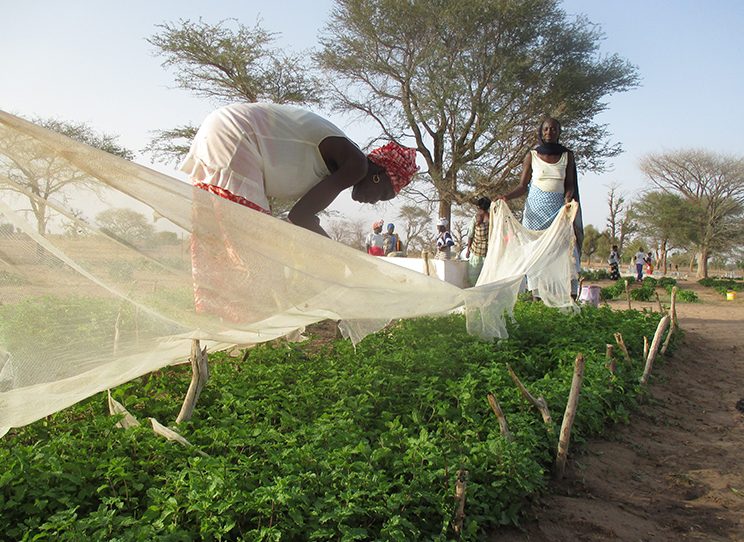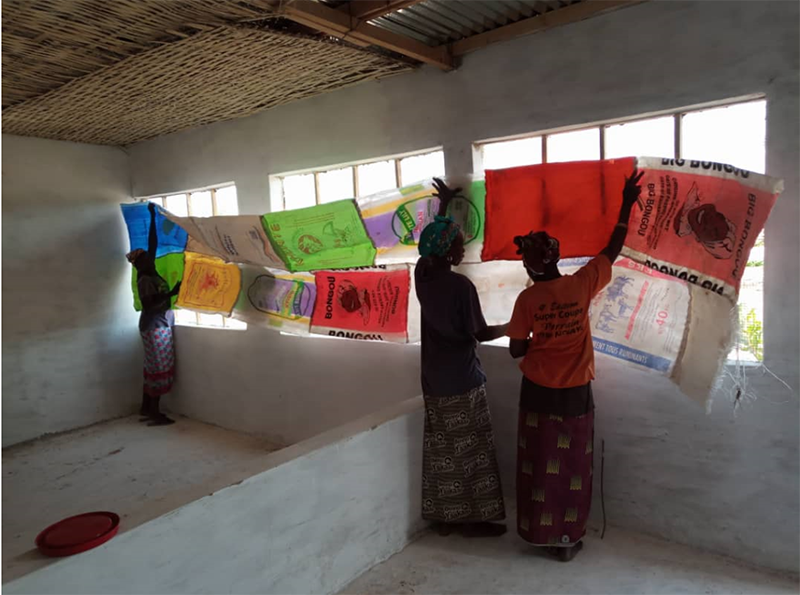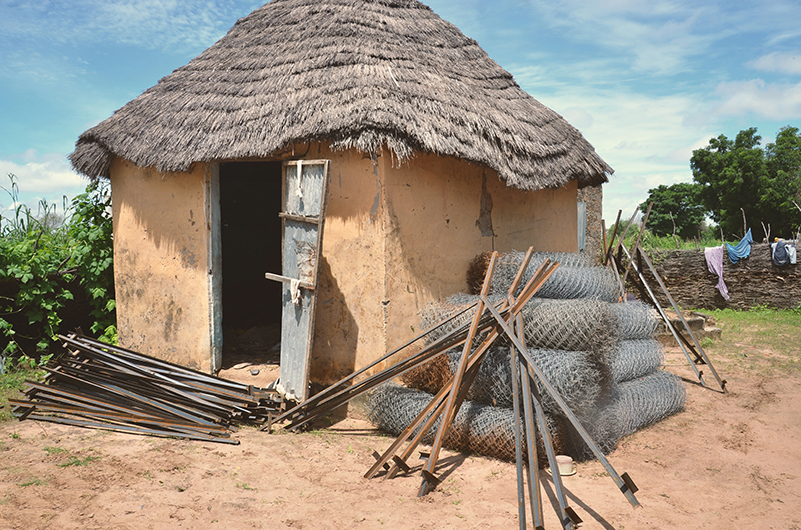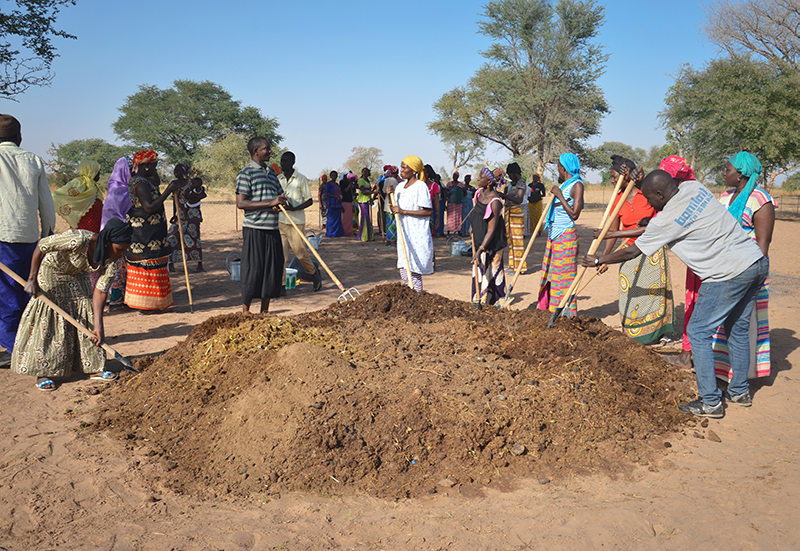We live in a linear economy, described as a “take-make-dispose of” way of living. This creates excess waste that builds up over time and harms our environment. A circular economy, however, closes the loop so that “waste” is often improved and reused again. This mimics the natural cycle of our environment. Essentially in nature, almost nothing goes to waste between plants, animals, and the cycle of life and death. To summarize, developing a circular economy focuses on minimizing our waste by reusing materials and utilizing what our natural resources already provide us with. The question we are focusing on in this blog post is: How can communities develop a circular economy in rural Senegal?
There are many ways that CREATE!’s partner communities are already recycling and reusing old materials. Through CREATE!’s programs however, many community members are developing additional innovative techniques to reuse resources sustainably. These can be ideas like composting food or livestock manure, reusing old water buckets for crops, reusing fencing materials, and many other techniques. In this blog post, we are going to focus on three innovative techniques: Mosquito netting for gardens, feed bags for poultry shed windows, and reusing old fencing materials. These techniques support the idea of building a circular economy in rural Senegal.

Mosquito Nets for Community Gardens
Our cooperative gardens are especially tempting for locusts because they are green oases in Senegal’s arid landscape. Most farmers treat locusts with chemical pesticides, but our staff found that recycled mosquito nets are very useful locust deterrents. Cooperative members and their neighbors recycled their old mosquito nets and used this netting to cover garden plots. Mosquito nets are a locally and culturally appropriate solution to protect crops from pests. Once community members put the mosquito nets in place, the locusts abate and leave the region without causing significant damage.

Feed Bags as Window Covers
Senegal’s nine-month dry season brings soaring temperatures and the Harmattan wind, which causes natural disturbances in rural communities. The Harmattan wind is a dry, dusty, northeastern wind that blows from the Sahara desert across West Africa. Our partner communities take precautions to protect their crops and look after the poultry. As shown in the photo above, women have sewn an array of empty feed bags together. These will cover the windows to protect their chickens from the heat and the wind.

Passing on Chain-Linked Fences
To protect community garden plots from livestock and the dry season winds, cooperative members grow a live-fence around their land. Communities first implement a chain-linked fence to guide the growth of the live-fence around the perimeter of the garden. Once the live-fence is fully grown, communities can remove the chain-linked fence. They will then donate the fence to CREATE!’s next partner community. As a result, the next partner community will have the means to develop protection around their garden as well. This process of granting the chain-linked fencing to the next community supports the development projects in the many villages to come.
Acquiring Fence Material in Rural Senegal
Chain-linked fencing cannot be purchased on its own in rural Senegal. First, CREATE!‘s technicians need to acquire the proper fencing wires. Next, our technicians take these metal wires to a professional “braider”. The braider and his team will spend the next few weeks twisting and bending all of the wires until the fence is created and ready for use. This is a lengthy process, which is why it’s so important to recycle and reuse old fencing.
What does a Circular Economy Mean for Rural Senegal?
A circular economy leads to conscious waste management and more sustainable living. In rural Senegal, many villagers are facing a lack of natural resources in the face of climate change. This includes water, food, and fuel shortages. Developing a circular economy in rural Senegal means creating a solution that will improve the local environment while benefitting the local communities. If people can maintain and replenish their natural environment through projects such as tree-planting campaigns, using improved cookstoves, and utilizing solar energy, then they will be able to sustain themselves once again. With a circular economy, people will not only be replenishing the environment but they will also be creating less damaging waste when they reuse and refurbish old materials. Although the idea is still in the making, we believe that our partner communities are off to a good start when it comes to developing a circular economy in rural Senegal.

